
TORONTO INTERNATIONAL FILM FESTIVAL 2010 REVIEW: DAY ONE
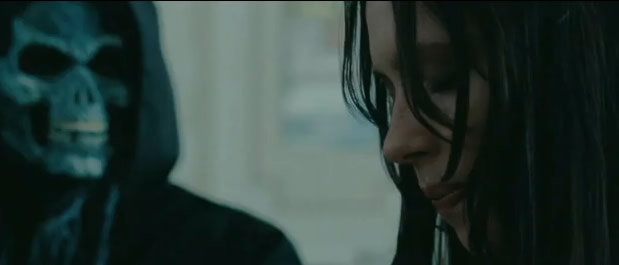 A quick note to anyone traveling from the city to Buffalo or Niagara Falls or the Great White North: if you plan to eat on the way, do not stop in Batavia. If you must stop in Batavia, do not eat at the Sport of Kings Diner (aka Sporto's). Its beige walls and dirty floors...its deep-fried bologna menu option...its anorexic waitresses...its slowed-down muffled jukebox that plays only Everly Brothers songs. It is so cripplingly depressing we almost didn't escape. Please, do not eat there. There's a Denny's down the street - don't give up, you'll find it! Other than that, the drive up to Toronto was pleasant enough but we arrived too late to look around the area: we called it a night in anticipation of the first Press & Industry screening at noon the next day. -- john
A quick note to anyone traveling from the city to Buffalo or Niagara Falls or the Great White North: if you plan to eat on the way, do not stop in Batavia. If you must stop in Batavia, do not eat at the Sport of Kings Diner (aka Sporto's). Its beige walls and dirty floors...its deep-fried bologna menu option...its anorexic waitresses...its slowed-down muffled jukebox that plays only Everly Brothers songs. It is so cripplingly depressing we almost didn't escape. Please, do not eat there. There's a Denny's down the street - don't give up, you'll find it! Other than that, the drive up to Toronto was pleasant enough but we arrived too late to look around the area: we called it a night in anticipation of the first Press & Industry screening at noon the next day. -- john
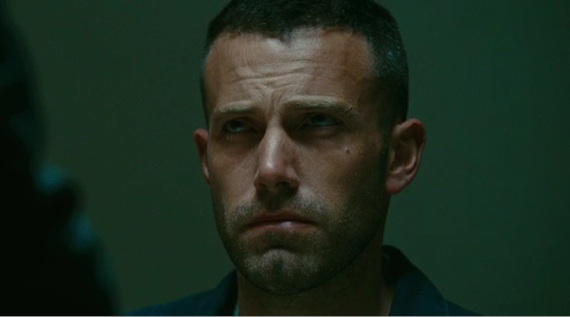
The Town.
Christopher: An invigorating way to start the festival – Ben Affleck as a director shows the same flair for crime melodrama that he did with Gone Baby Gone. Tense crimes, great shootouts. People really seem to hate him as an actor, but I got no complaints with his lead performance. Hell, I didn’t even mind Jeremy Renner as his sniveling, hot-headed l'il buddy. Still, it suffers from the same problem as Gone Baby Gone: there are a couple absolutely ridiculous things in this film that me hesitant to over-praise it. Those ridiculous things ultimately only occupy about 10 minutes of screen-time, so they are easy to overlook.
John: Against all odds, Ben Who-fleck's directorial debut Gone Baby Gone became my favorite film of 2007. Still, there was a chance it was just a magnificent fluke, so I entered The Town with a slight amount of trepidation. The good news is that the things that worked in Affleck's debut - good location shooting, "found" extras, skillfully directed action sequences - are just as well-handled in his sophomore effort, if not better. The bad news is that Baby's flaws - weak female lead character, the trappings of crime fiction storytelling - are also still evident. But as Chris mentioned, these are really minor nitpicks in an overall exceptional effort, one made all the more impressive by Affleck taking a risk and offering himself up as the Steve McQueen-ish lead (he helped himself out by hiring such reliable character actors as Chris Cooper and Pete Posthlewaite). The end is like the plot of Richard Stark's novel The Seventh imbued with the action of the final heist in Michael Mann's Heat, and if that doesn't sound awesome to you then the movie might not work as well for you as it did for me. In that case, you're a toonie.
What I learned: Way more about the geography of Boston than I ever wanted to know. Also, Blake Lively - playing a white trash slut - shows that she may one day give as good a performance as Jason Lively in European Vacation or Robyn Lively in Teen Witch.
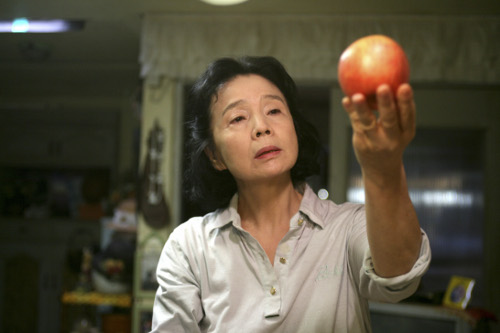
Poetry.
John: As I think we in this year's festival preview, Day One's options were not spectacular and opened itself to a few blind picks. That's fine, it's one of the fun things about the TIFF, but I find that as my experience with the festival has broadened so has my tolerance for random films waned. So I only stayed at this one for a little under an hour, giving it just enough time to impress me without really engaging my interest in any way. The best thing about the movie is Yun Jung-he, an actress making her first screen appearance in 15 years, whose character is handled very much the same way as Kim Hye-ja's in Mother: unflinchingly supportive, adorably simple, and the victim of her own kindness. It's heartbreaking to watch the lonely Yun trying to have a real conversation with a store clerk who simply stops paying attention to her once social etiquette has freed her from the obligation. Still, it's one of those cases of a Korean film featuring a terrific lead character surrounded by a bunch of stereotypes: uncaring caregivers, dumb cops, jaded youngsters, a murdered girl...wow, this actually is a lot like Mother (at least what I saw of it). I knew from the synopsis that Yun's character begins to deal with the hardships of life through a poetry-writing class, and ultimately a movie about a character writing poetry was not going to maintain my interest for very long, so I decided to make it an Affleck brothers double feature and headed to I'm Still Here.
What I learned: Never title a movie Poetry.
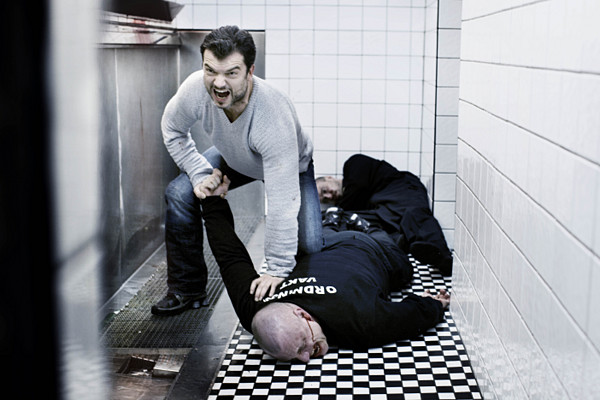
Snabba Cash (Easy Money).
Christopher: Based on the first part of a best-selling trilogy of novels, a gigantic hit in its native Sweden, a smart, gritty thriller, the producers of Snabba Cash want you to maybe, possibly make the connection between their film and a certain lucrative girl with a famous tattoo. Still, this film is more Dardenne brothers-meet-Michael Mann than a purely pulpy thriller – shaky cameras and mumbly performances grafted onto a convoluted crime epic. I enjoyed it less than I would have if I hadn't seen it immediately after the extremely satisfying and similar Affleck film.
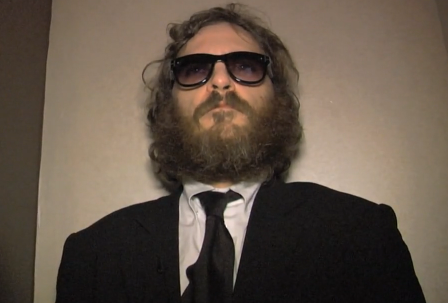
I'm Still Here.
John: Like most sensible people I know, I had zero interest in Wa-keem's little performance art project, but as I was waiting for Poetry to start I glanced over its cast list and saw that Edward James Olmos makes an appearance as himself, staging a personal intervention for the allegedly career-wrecking movie brat. Olmos' speech about how the SpaceCampstar is a drip of water evaporating at the top of a mountain actually sets up the movie's one good joke; everything else is as intolerably pretentious and irritating as one might expect coming from an untalented actor who thinks it's edgy to make himself look like Zach Galifianakis and mumble around his celebrity friends. This whole thing is basically a win-win situation for Phoenix: if people buy his nutty behavior, he'll be considered a weird artist; if not, he'll be considered a great actor who came up with this goofy scheme. That alone guarantees that I won't remember a single scene from this movie a couple weeks from now, although Casey Affleck actually does a decent job making it all seem meaningful when it clearly isn't. Even though everybody knows this is a stunt, they seem to be at least curious enough to see the movie (me included) - so I guess this douchebag wins?
What I learned: P Diddy thinks Gone Baby Gone was "the shit" but The Assassination of Jesse James was a little "whack." Also, one shouldn't just assume Danny Glover needs a hug. Danny Glover will let you know if Danny Glover needs a hug. Otherwise step off.
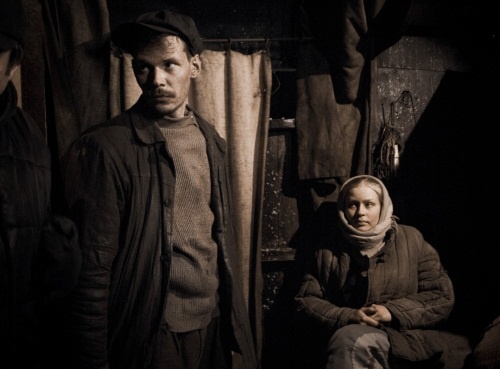
The Edge.
John: On the way up to Toronto, one of the topics brought up in the car was whether or not David Howell Evans' stage moniker was in fact "The Edge" or simply "Edge." For the record, it's "The Edge," and he named one of his daughters "Blue Angel." Seriously. But that has nothing to do with this movie, described in the TIFF guidebook as a Russian historical drama that "fuses steampunk aesthetics" with its period tale of a bunch of people hanging out in a Siberian trainyard. There's steam in the movie - from the train - but other than that I have no idea what the guide was talking about. Before the screening began one of the producers announced that three hours earlier the film had been nominated for the Russian equivalent of the Academy Award, making me question the quality of Russian films in this day and age. Maybe Communism was a good thing for the country after all - the directors have become less successful and the serial killers have become more successful (the post-Soviet Pichushkin having topped Chikatilo's body count). Anyway, the movie is a lot of stop-and-starts, with scenes ending awkwardly and seemingly without transition from one to the next. Even the above-average sequence of two people rebuilding a bridge felt patchy and poorly edited. The whole thing came off like a Jeunet-ian attempt to present a group of eccentric characters brought together by chance, but even the actors in the respective Ron Perlman and Audrey Tautou roles are bland as a desolate post-war Russian landscape. I didn't realize it at the time, but it was actually an appropriate follow-up to the movie about the sagging career of the kid from Russkies (no, not Whip Hubley...Whip Hubley is flourishing). Also the bear in this one was no Bart the Bear from the Anthony Hopkins-Alec Baldwin thriller The Edge.
What I learned: Siberia is snowy.
Christopher: Gah, how do I even explain something like this? A concussed Russian soldier living in a wintry town (prison encampment?) in post-WWII Russia (that also appears to be some kind of an alternate reality) discovers a German girl living in a train abandoned in the woods and, after a lengthy bit of train-rehabilitation and bridge-building, together they make their escape from the vulgar, mean-spirited townsfolk. It's a mess. Someone clearly spent a metric shit-ton of money on this thing, but it is impossible to imagine who or why.

Bad Faith.
Christopher: 5 minutes into The Edge, I knew it was going to be awful. Bad Faith is a slightly trickier film in that it took me almost the entire running time to decide that I was wasting my time. A meek office worker witnesses a man stabbed in an alley and does nothing to save him. From there, she begins to fear that her neighbor is the (serial) killer and the late film twists are obvious from a mile away, as painfully inevitable as her sub-Polanski descent into paranoia. With its careful framings and compositions, slow pace and oblique characters, the filmmaking is deliberate and quiet and the whole thing constantly feels on the verge of going somewhere, like the looming twists are just set-ups to subvert expectations, but about 15 minutes before the film is over, it's clear that this tiring Swedish thriller (Sweden repping it hard in this fest!) doesn't have any more tricks up its sleeve.
John: In this movie a lanky Swedish broad moves slowly from one place to another wearing very loud heels and that's literally all that fucking happens. Directed with the kind of over-stylized under-stylizing that has never worked for anyone but Robert Bresson and Michael Haneke by some dude named Kristian Petri. Again, the guide was a little misleading, comparing this movie to the giallos of Dario Argento. At one point two characters have a conversation about processing a dead person's final image from his eyeball, which is essentially the plot of Argento's Four Flies on Grey Velvet, but the only cool thing about the movie is that the elusive murderer is known as the "Bayonet Killer." Besides that, Bad Faith is the worst example of a movie derivative of the most obnoxious arty bullshit.
What I learned: Not to have faith in Kristian Petri.
TORONTO INTERNATIONAL FILM FESTIVAL 2010 REVIEW: DAY TWO
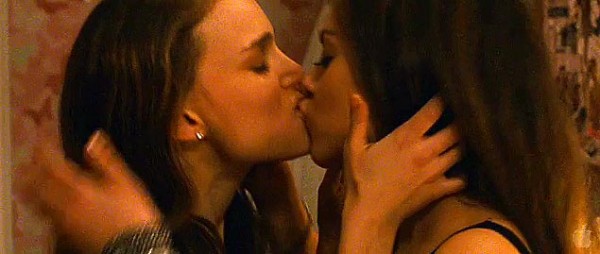 I honestly wasn't sure what to expect this year: new venue, new hotel, new part of town. It turns out that almost everything was an improvement, from the bed bug-less Scotiabank Theatre to the mercifully shortened and much less annoying sponser ads at the beginning of each film (although I'm still worried about a certain man made out of money who was allegedly beatened to death with golf clubs for his sweet green skin in one particularly weird commercial). I did get an extremely sore neck from sneaking into screenings late and having to sit up front, but it was a small price to pay for the vast improvement in organization and location. -- john
I honestly wasn't sure what to expect this year: new venue, new hotel, new part of town. It turns out that almost everything was an improvement, from the bed bug-less Scotiabank Theatre to the mercifully shortened and much less annoying sponser ads at the beginning of each film (although I'm still worried about a certain man made out of money who was allegedly beatened to death with golf clubs for his sweet green skin in one particularly weird commercial). I did get an extremely sore neck from sneaking into screenings late and having to sit up front, but it was a small price to pay for the vast improvement in organization and location. -- john
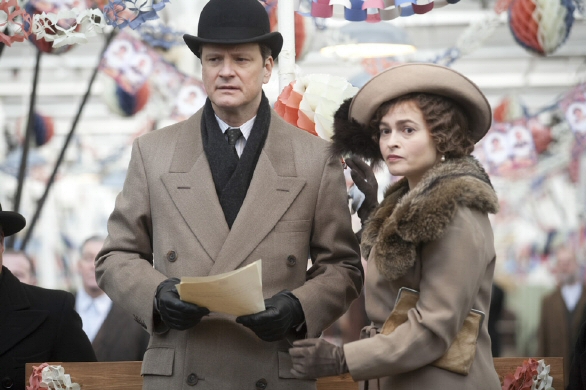
The King's Speech.
Christopher: Colin Firth and Geoffrey Rush in a crowd-pleaser that is absolutely going to murder the audience at the Jacob Burns Film Center. A tastefully appointed historical drama about a regent with a speech impediment and the unorthodox but effective speech therapist who cures what ails him just in time to deliver a morale boosting oratory leading England into War. Orthodox but effective, Rush is going to be all over magazine covers and tv screens during awards season and has secured his place as the early favorite for Best Supporting Actor. Did I like it? What am I, an idiot - give me a break.
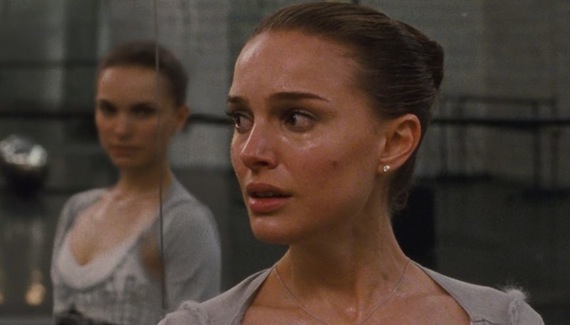
Black Swan.
John: In film fests past, I've witnessed unabashedly pretentious Aronofsky (The Fountain) and achingly honest Aronofsky (The Wrestler). I figure as long as he doesn't try to pull that Robocop remake we keep hearing about, I'll be intruiged enough to see what he's come up with. I think this time he was trying to tap into the bodily horror of Cronenberg via the route of Argento's recurring art/obsession theme, but it's more like his version of The Grudge. I think that's because Aronofsky, the artiest journeyman director of our age, simply isn't comfortable enough with the genre to create a genuinely provocative horror film and has to rely on the kind of standard visual scares found in Stir of Echoes or In Dreams. Black Swan has more shots of mirror images reacting differently than its subject than any movie I've ever seen, even Alexandre Aja's Mirrors, in which that is the central plot of the film. Sarah Michelle Gellar would have been more appropriate as the short circuting ballerina than Natalie Portman, but for her part Portman is inoffensive enough while Vincent Cassel steals the movie as a ridiculous ballet director and Mila Kunis holds her own as a rival dancer. So the cast is fine, the horror aspect is cheesy, and as far as being a Red Shoes-evoking melodrama about a dancer's performance anxiety, I just didn't feel how hard it was to dance well the way it seemed hard to wrestle in Wrestler. This one falls somewhere in between the director's last two efforts, but turned out to be less memorable than either.
What I learned: So much more than I ever wanted to know about the plot of Swan Lake.

You Will Meet a Tall Dark Stranger.
Christopher: I'm not a Woody Allen fan. I don't like his early comedies, I don't like his late period Eurotrip, I certainly don't like his self-serious 80's phase. [what about his clarinet playing?? -- john] And this one starring Naomi Watts and Frieda Pinto (among other, less attractive people) has been getting bad reviews. So, I am shocked to say that I really enjoyed it. It's a low key and understated comedy about various couple breaking up and re-coupling and it's just played exactly right. I think of the guy who did Whatever Works, Bananas, Bullets Over Broadway and Curse of the Jade Scorpion and I just can't believe he can be this restrained and effective – it actually makes me want to give some of his films that I didn't like but haven't seen for years like Manhattan and Hannah and Her Sisters a chance. Even the actors I don't like in this such as Josh Brolin and Anthony Hopkins are likable. As a matter of fact (let me protect myself by prefacing this with the statement that "unsubstantiated sources having been saying") Jonathan Demme has been telling folks around the JBFC that this is Anthony Hopkin's best performance - and it's hard to disagree with him. Funny without flailing for the comedy and heart-breaking without ponderously stepping on the notes of pathos, Allen has delivered what's definitely my own personal favorite work from the notorious (and notoriously inconsistent) nebbish.
John: What reality is this where Frieda Pinto is willing to leave her young, handsome fiance for a guy who looks like Josh Brolin and tells her "could you do me a favor and not close your shade when you take your clothes off?" But that's the theme that's kind of been lurking the cracks of Allen's movies ever since Manhattan right up to his recent Sco-Jo obsession: that the movie gods can bring a gorgeous young lady together with a gross old intellectual. Not that the theme isn't neutral to gender - Antonio Banderas is just as likely to prefer that unappealing chick from "Pushing Daisies" over Naomi Watts. The movies Allen's made in London about people trying to find happiness suffer in comparison to the homegrown work of Mike Leigh, but this new one is a huge improvement over the other three (Matchpoint, Scoop and Cassandra's Dream) and, I'm sure, over the Larry David one. It's full of subtle jokes, like the sham fortune teller using a normal deck of playing cards as tarot cards. I agree with the director of Silence of the Lambs: this is Anthony Hopkins' best performance (next to The Edge), and I can't imagine there being a funnier moment in a movie this year than "I hadn't thought of AIDS..."
What I learned: That chick from "Pushing Daisies" is unappealing. (Oh wait I already knew that).

Force of Nature: The David Suzuki Movie.
Christopher: Just popped into this for 10 minutes, but it's basically just a filmed lecture intercut with interviews with a notable Canadian scientist/philosopher/thinker named David Suzuki. The TIFF catalogue describes his as a "household name," which I bristled at until Paul ooney told me the story of some Canandian t.v. interviewer dude I had never heard of getting mobbed on the street by enthusiastic crowds. They just have different names floating about Canadian households is all. Mr. Suzuki seems like a likable enough guy, sorta like a more beard-intensive Carl Sagan. I'd watch this if it were on t.v.
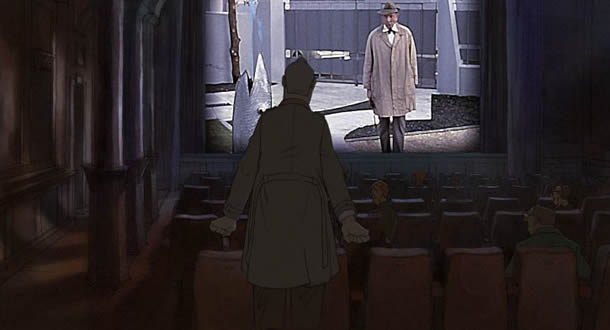
The Illusionist.
John: His contribution to Paris, je t'aime aside, this is Sylvain Chomet's first film since 2003's The Triplets of Belleville. I know that Oscar-nominated feature had a huge backlash against it, but I liked it a lot: I loved the brilliant use of sound and the wordlessly-established relationships between its colorful characters. I think I like this one even better, and not just because it's genuinely thrilling to see the pencil marks in its gorgeous hand-drawn animation. Adapted from the script Jacques Tati allegedly wrote to express feelings of regret involving his estranged daughter but never ended up filming, The Illusionist does a great job straddling the mime/auteur's visual gags with the film's achingly moving visuals. The title character is a wonderful reincarnation of Tati (the garage sequence feels like an authentic moment from Playtime or M Hulot's Holiday), and his young charge is as charming as any Disney heroine, even though all she does in the film is mature into a young woman. Tati and Chomet understand what it is to grow up in an increasingly disillusioned world, yet never lose faith in its romantic hold-outs.
What I learned: Even starving ventriloquists offer what little food they have to their creepily-voiced wooden dummies.
Christopher: Devastatingly beautiful, just a crushing, unforgettable movie. It's surprising that I liked this as much as I did: I don't particularly care for director Sylvain Chomet's first film, The Triplets of Belville, nor do much care about its legendary screenwriter Jacques Tati. The script itself is amazingly constructed and, virtually wordless for its entire running time, builds to just an unbelievably poignant ending. I think it's fair to say the film would have been funnier with Tati actually performing the physical comedy, but it wouldn't have been nearly as poetic and beautiful without Chomet's water-color inspired animation. The second day of the festival and already two brilliant surprises that I can honestly say I never saw coming - working from a script from a beloved performer and then imitating his inimitable style in outrageously spot-on animation, The Illusionist sets a very high bar for itself and clears it easily.
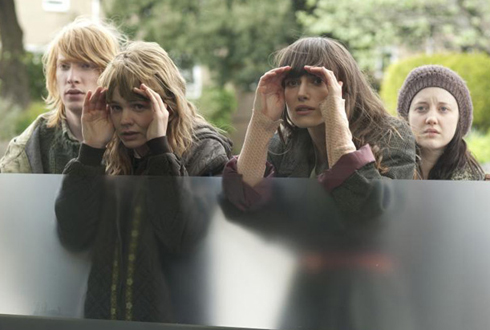
Never Let Me Go.
Christopher: Oof. Pass. I mean um I don’t wont to spoil my thoughts on this for any members of the JBFC Film Club who might be reading, members to whom I feel a great deal of responsibility.
John: Let me take a crack at it, Funderburg. 10 minutes into this movie, I realized it was yet another rip-off of Parts: The Clonus Horror (somebody let Robert Fiveson know!) The chief difference between Mark Romanek's film and that 1979 cheapie, an indisputably horrible flick that was lampooned on Mystery Science Theater 3000, is that at least Clonus had a plot and characters who reacted to it. In Never Let Me Go, the characters' chief motivation seems to be to remain as compliant as possible in light of their fucked up situation. Despite its defiant, Titanic-inspired title, the alleged heroes of the film are a bunch of brainless sheep merrily led to the slaughter with very little resistance whatsoever. Can you imagine a Die Hard with John McClane saying "Terrorists?! Ah well, better head downstairs and surrender. I mean they clearly put a lot of hard work into their plan, it would just be a dick move on my part to try and botch things up for them. I could probably get a Coke down there, too..." Maybe that's not the right comparison, but the fact that none of the people in this movie appear to care what happens to them and are content to simply sit up there on screen looking mopey for 2 hours just brings the purpose of the entire film into question. To top it off, Carey Mulligan is unwilling to react to anything happening in this movie makes her all the more irritating. I for one couldn't wait for her to "complete."
What I learned: Andrew Garfield does not strike me as a potentially awesome Spiderman.
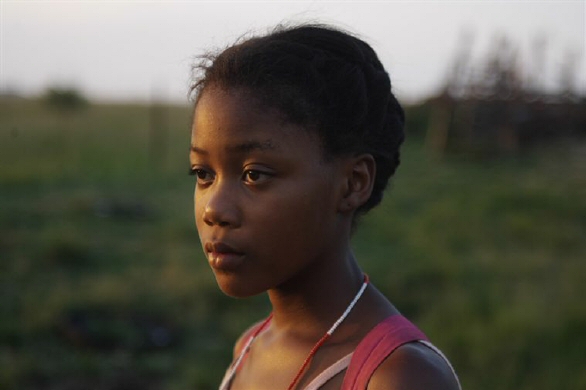
Life, Above All.
Christopher: Anyone up for a South African film about the daughter of a woman with AIDS? No? What if I told you that the filmmaking was pedestrian and the tone earnest? Still not sold? Ok, ok, what if I told you the AIDS-infected mother was persecuted by the people of their small village for being a witch simply because she had AIDS? Would that be enough to rend your heart and make you look deep into the True Nature of Suffering of the poor brown people of the world? Would that push your spirits down far enough to really make you feel free when those same crushed spirits soar later on carried by the wind of Human Triumph Over Adversity? There's no reason to feel bad about ignoring well-meaning but manipulative trash like this film. Unless you for some reason you didn't know Africa was a fucked up place. Then, by all means, see it. I think it will really open your eyes.
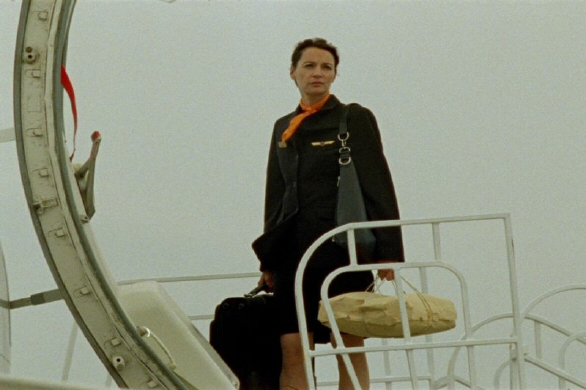
At Ellen's Age.
Christopher: One of those hapless foreign cinema misfires that somehow pops up on the festival circuit despite a general air of incompetence. A meek flight attendant, through a series of circumstances too hilarious and convoluted to divulge in brief, finds herself caught up with a flamboyant group of radical animal rights activists. A poorly executed narrative peppered with poorly executed artistic flourishes, the filmmaker leans on weirdness for the sake of weirdness as though it will somehow redeem the clichéd activity of its drama. A meek woman finds herself after a midlife crisis, experiencing a political and spiritual awakening. It's all rote by any standard and naked protests and random monkeys won't do anything to save this inert, unfunny, poorly made film.
TORONTO INTERNATIONAL FILM FESTIVAL 2010 REVIEW: DAY THREE
 Two days and two genuinely great films is one thing, but three days and three genuinely great films? That's unprecedented. Day One was the only screening for which we were forced to hike to the Roy Thomson Hall, the only slightly inconveniently located venue, and Day Three introduced us to the much-publicized Bell Lightbox. Sitting in the tiny theater of that architectural atrocity made me instantly nostalgic for the $5 pizza at the Scotiabank multiplex. But what really mattered was the movies, and a thrilling crime melodrama followed by a terrific animated movie leading into a brand new Mike Leigh film? It's hard to complain about anything with that three day lineup. -- john
Two days and two genuinely great films is one thing, but three days and three genuinely great films? That's unprecedented. Day One was the only screening for which we were forced to hike to the Roy Thomson Hall, the only slightly inconveniently located venue, and Day Three introduced us to the much-publicized Bell Lightbox. Sitting in the tiny theater of that architectural atrocity made me instantly nostalgic for the $5 pizza at the Scotiabank multiplex. But what really mattered was the movies, and a thrilling crime melodrama followed by a terrific animated movie leading into a brand new Mike Leigh film? It's hard to complain about anything with that three day lineup. -- john
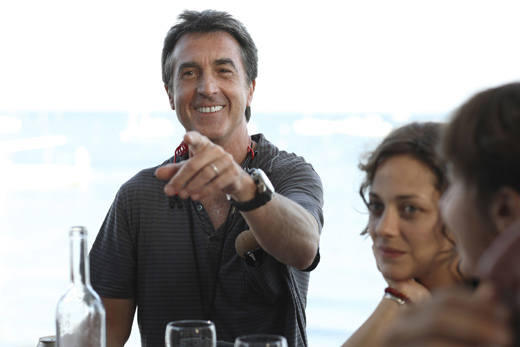
Little White Lies.
Christopher: A French variation on The Big Chill and exactly as loathsome as that sounds: after a friend's catastrophic scooter accident (fucking European people and their stupid scooters), a group of middle-aged friends gather for an annual vacation and reflect on life, love and a quickly fading youth. Early in the film, Marion Cotillard's character wistfully listens to a recording she made while in Africa doing volunteer work of children singing traditional folk songs. It will make you want to jump up inside of the screen and vomit on her. Did I mention she shortly thereafter has disaffected, loveless sex with a scraggly hippy that she then asks to leave without so much as a snuggle? It's as though some sort of large coldness has settled over a woman once filled with a youthful idealism. Don't worry, the characters' street cred is fully intact not only because of the aforementioned scooter, but because of their fondness for getting drunk on red wine and making casual references to homosexuality and cocaine. Plus, they listen to that stupid, inescapable Jet song "Are You Gonna Be My Girl," so they clearly still know how to rock. The film most deserving of hate and derision at this year's festival. The always lovable Benoit Magimel makes it out of the proceedings unscathed despite playing a one-note walking punch-line to a moronic gay-panic joke.
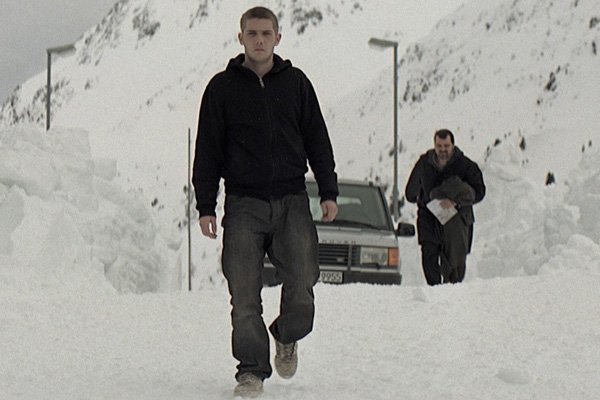
Tender Son - The Frankenstein Project.
John: This film, ostensibly about two youths who hang around a bleak snow-covered apartment complex while one of them carries on a passionless murder spree, was at best a suitable lead-in to Let Me In. At worst, it was as boring and pompous as the Cannes critics claimed, with its director exhibiting the sort of cold, dehumanizing attitude of Bruno Dumont while simultaneously appearing in the movie as himself so everybody can see what an interesting and controversial artist he is. It's egotism run rampant, and the story of a sociopathic youth who leaves flowers for some people and senselessly murders others is related to Mary Shelley's classic novel only in the sense that the premise is made up of unrelated, stitched together material that turns out to be a disaster. I didn't find any of this particularly offensive, just depressingly dull.
What I learned: Some supposedly internationally acclaimed filmmakers you've never heard of for a reason.
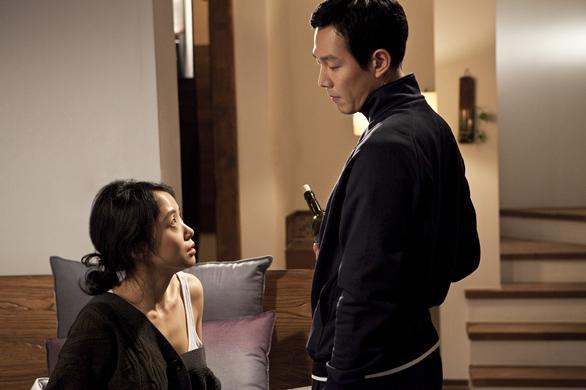
The Housemaid.
Christopher: Few films fly as impressively off the rails in the last ten minutes as this Korean remake of a Korean classic (of which I had never previously heard.) It's a tense, creepy and quite enjoyable thriller about a poor housemaid seduced by the husband of her pregnant housewife boss. But the big finale is equal parts excessively violent and totally silly and that's even before it gets to a coda that ranks up there with Wild Grass as the most inexplicable, unrelated-to-the-plot ending I have ever seen. The lead actresses are great and Jeon Do-youn as the titular housemaid does a lot to balance the tone of the film between completely unpredictable and completely unbelievable – she delivers a performance that always has you second-guessing your sympathies and wondering exactly what she might be capable of before once again snapping your back into her corner and making you feel guilty for ever having doubted her. Her work draws you through a complex cycle of emotions before the film explodes into a flaming ball of stupidity and what-the-fuck-ery.
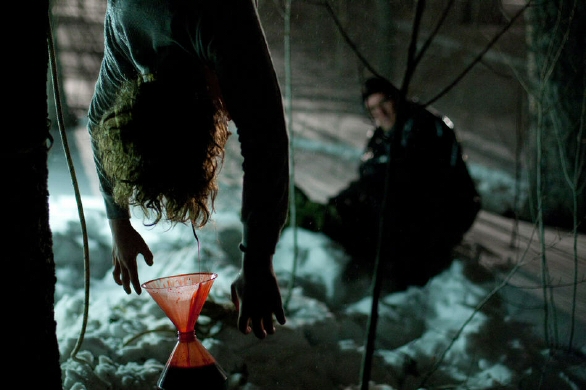
Let Me In.
Christopher: I'm indifferent to Tomas Alfredson's now canonized take on the popular novel, so I'm certainly not the best judge of this thing. It's virtually an exact remake of Alfredson's vision with all of the tone and production design lifted directly from the original film – they even assiduously reproduce a few of the more memorable shots and sequences from the Swedish (Sweden! Woot, woot!) instant classic. Let the Right One In is fine – I have nothing against it – so my reaction to the director of Cloverfield's imitative take on the material is that it's also just fine. In a stupefying move, the film pointlessly takes place in Los Alamos, New Mexico and then treats it like Ostersund in February with a constant thick blanket of snow covering everything at all times, even in broad daylight. I'm no Sam Champion, but that doesn't seem right to me. As a matter of fact, it ended being a big distraction because I spent half the film wondering "Do I just not know anything about New Mexico? I know it snows in the mountains a lot and they have ski resorts and even down out of the mountains it gets cold at night and even snows some, but it's not like fucking Alaska down there ever, is it? It just can't be." Also a problem: there is some truly cheesy CGI of the vampire girl hopping around like she's Yoda in one of the prequels.
John: I'd already noticed the visual similarities to shots from the original in the trailer, and indeed everything but the genital scars seems to have translated over to this version leading me to ask - why bother remaking it? If it's going to be as slow-burning and moody as the first film, how accessible can it possibly be to American audiences? Did the studio just figure it'll reap some of that sweet sweet Twilight money by virtue of the fact that the plot is essentially about two young people who fall in love and one of them happens to be a vampire? Some ridiculous-looking I Am Legend-esque CG work makes this the lesser of the two films by default.
What I learned: New Mexico is...snowy? I looked it up after seeing the movie and, yes, it has been known to snow in Los Alamos (enough, at least, that several local snow removal companies advertise online). However, the city is more commonly known to have a very hot climate. In fact, high winds and drought conditions caused five disasterous forest fires in the second half of the 20th century. However, the county also has an anti-bullying monitor company. Also, no vampire attacks have ever been reported in the area.
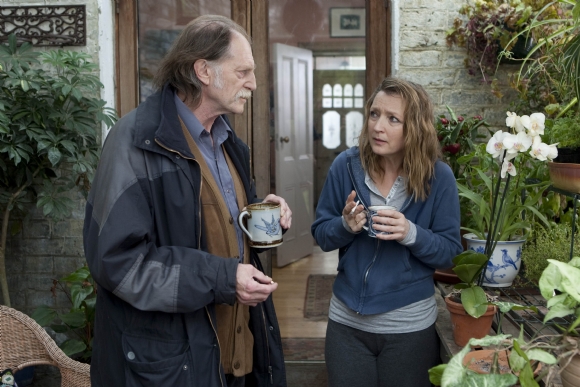
Another Year.
John: Another year, another slam dunk from Mike Leigh. As with anything he's done, Leigh's latest is so beautifully realized and self-supporting that I feel genuinely unworthy to even write anything about it: the film just speaks for itself. In a way it's the perfect place to pick up a thematically-related "couples" trilogy 20 years after 1988's High Hopes and 1990's Life is Sweet, especially considering Another Year's married team is made up of one actor from each of those previous pairings (Ruth Sheen from Hopes, Jim Broadbent from Life). Neither charming outsiders like Cyril and Shirley or struggling optimists Andy and Wendy, Another Year's Tom and Gerri are reasonably successful people content with their own belief system and satisfied that they're better off than the people around them. At first they seem completely likable and admirable, but as we see more of their miserable friends and family it becomes apparent that this a movie about how the happiest, nicest, most successful and socially competent people in the world may in fact be the very worst. Lesley Manville (who, at seven collaborations with the director, just barely edges out Phil Davis - who has a small part in the film - and Alison Steadman as his most frequent actor) gives as amazing and heartbreaking a performance as Imelda Staunton and Sophie Hawkins in Leigh's last two films, and Staunton herself appears in two particularly crippling scenes.
What I learned: Happiness and common decency can be absolutely awful.
Christopher: I can't imagine that other filmmakers don't see Mike Leigh's work and feel like throwing in the towel right then and there. He's just operating on another level and if I were trying to compete with him, if I had a movie in TIFF 2010, I would just want to give up. The plots of Leigh's movies never sound spectacular and his latest lacks even the meager hooks of Vera Drake or Happy Go Lucky – Another Year is in the same vein of his other dull-sounding, mind-blowing masterpieces like Life is Sweet and All or Nothing. You're just going to have to take my word for it when I say that all three of the leads (Ruth Sheen, Jim Broadbent and Lesley Manville) deserve the highest possible praise for their performances and that Mike Leigh makes completely unpredictable, powerful, singular works of art that I don't even hesitate to saddle with such off-putting and pretentious labels. I guess you could also trust that Mike Leigh has once again does what Mike Leigh always does and rest assured that there is almost no other filmmaker on the planet on his level, no other film artist who shouldn't feel a little bit ashamed to be wasting our time with a film that isn't Another Year or Naked or Secrets and Lies.
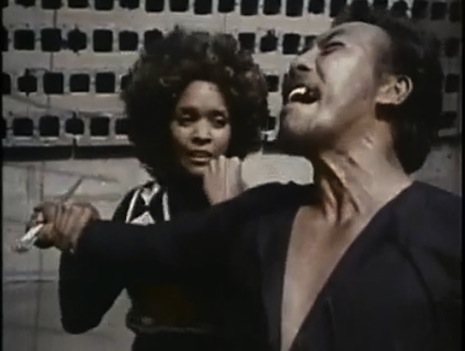
Machete Maidens Unleashed!
Christopher: The festival's biggest rip-off – this shit isn't even about the film industry in the Philippines, it's about some shitty women in prison and cheesy kung-fu movies Roger Corman shot there. I like a good Corman story as much as anybody, but I've already heard all of these. Perennial Corman-related interviewees like Joe Dante, Jonathan Kaplan and Sid Haig even trot out old chestnuts about "the 3 B’s – blood, breasts and beasts," all of the various hilarious taglines for the films, the exploding helicopter in every trailer and made-up awards like the "Ebony Fist" award for the world's premiere black martial artist. It's fine, but it really does end up resembling the ol' Corman bait and switch: promise them something like crazy stories of lurid, low budget Philippine home-grown productions like The Killing of Satan and then just roll out the tired tales of Philippine-based productions like TNT Jackson and Caged Heat. On the one hand, this film is fine. On the other hand, it is an infuriating waste of a premise. That's Corman for you, I guess.
John: No Killing of Satan! In fact, no actual Filipino productions at all. Why would they interview Efren C Pinon if they weren't even going to ask about Bamba Queen? A more appropriate title for this would have been Roger Corman Invades the Philippines. Or, as with Not Quite Hollywood, Movies That Look Awful But Have One or Two Goofy Things That Distinguish Them From the Other Forgettable D-Movies Made at the Same Time. The introduction offers enticing questions as to what kind of films ended up being made in the climate of a post-martial law Marcos-governed Philippines where life was cheap, women were willing and production budgets were Weng Weng-sized. But it turns out it was mostly the same kind of exploitative crap being made in the States with the same American exploitation stars (Pam Grier, Carol Speed). So who cares? I would rather have seen an entire documentary dedicated to the life of Weng Weng than one padded with well-worn anecdotes about the hilarious trailer for Private Duty Nurses. And how many different film movements culminated with Apocalypse Now? First Peter Biskind made the case for New Hollywood crumbling in the wake of Coppola's disasterpiece, and here it's suggested that the Filipino production of the Vietnam epic apparently marked the end of America outsourcing cheapies to Southeast Asia.
What I learned: 169 workers were crushed to death and buried under quick-drying cement during the construction of the Manila Film Center when its scaffolding collapsed in 1981. There were rumors that none of the victims were recovered and to this day the foundation rests upon 169 corpses, although the Marcos administration claimed that all the bodies were recovered before the building was completed. Also, Colleen Camp is now fat. I mean, disturbingly fat.
CONTINUED NEXT WEEK IN TORONTO FILM FESTIVAL 2010 PART TWO!
home about contact us featured writings years in review film productions
All rights reserved The Pink Smoke © 2010